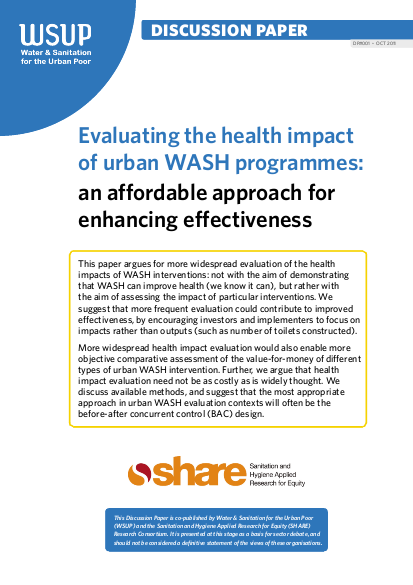
This paper argues for more widespread evaluation of the health impacts of WASH interventions: not with the aim of demonstrating that WASH can improve health (we know it can), but rather with the aim of assessing the impact of particular interventions. We suggest that more frequent evaluation could contribute to improved effectiveness, by encouraging investors and implementers to focus on impacts rather than outputs (such as number of toilets constructed). More widespread health impact evaluation would also enable more objective comparative assessment of the value-for-money of different types of urban WASH intervention. Further, we argue that health impact evaluation need not be as costly as is widely thought. We discuss available methods, and suggest that the most appropriate approach in urban WASH evaluation contexts will often be the before-after concurrent control (BAC) design.
Resource collections
- UN Habitat - Urban Response Collection
- Urban Response - Urban Crisis Preparedness and Risk Reduction
- Urban Response Collection - Community Engagement and Social Cohesion
- Urban Response Collection - Economic Recovery
- Urban Response Collection - Environment and Climate Change
- Urban Response Collection - Housing, Land and Property
- Urban Response Collection - Urban Crisis Response, Recovery and Reconstruction
- Urban Response Collection - Urban Resilience